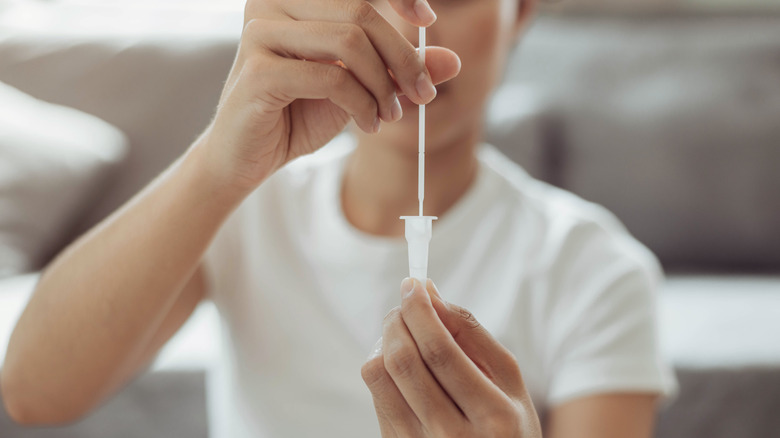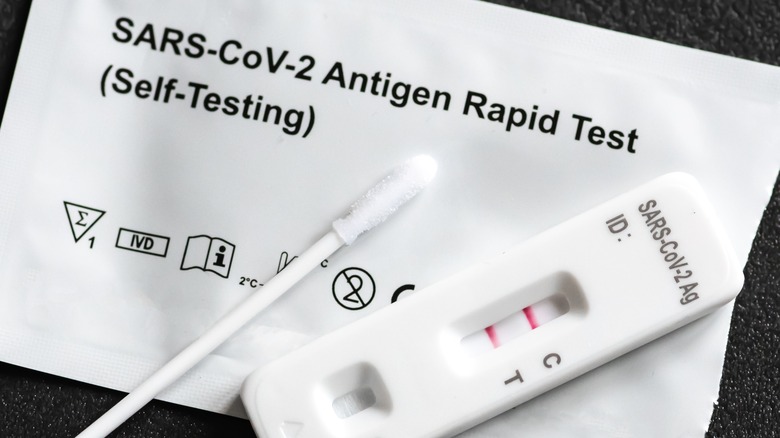Should You Swab Your Throat Instead Of Your Nose For Your COVID-19 Test?
With at-home antigen tests continuing to be in high demand amid the spread of the Omicron COVID-19 variant, many are using them as a means to ensure safe gatherings with friends and loved ones. However, some remain skeptical in regard to the efficacy of home testing kits, with individuals reporting incidents of false-negative test results (via The Washington Post). With the ability to detect high viral loads, experts state that at-home COVID-19 tests are best administered two to five days following initial exposure or upon the emergence of symptoms. Conversely, for those carrying minimal viral loads who may be asymptomatic, traces of the virus may not be as readily detected.
There are concerns about the effectiveness of these rapid at-home tests when it comes to the detection of emerging variants such as the Omicron variant. In a recent Senate Health Committee hearing, acting FDA Commissioner Dr. Janet Woodcock stated, "We do know the tests are picking up on omicron, but with less sensitivity" (via NBC News).
Now, a new preliminary study pre-published in medRxiv indicates that the Omicron variant may be more readily detected in saliva than nasal passages, where rapid antigen swab tests are conducted on the body (via USA Today). This study has yet to be peer-reviewed.
At-home antigen tests are not designed for throat swabbing
So if it's possible the presence of Omicron may appear earlier in the throat than in the nasal passages, should test-users consider a throat swab over a nasal swab? Health experts advise against doing so for the time being, explaining that at-home testing kits are not explicitly designed to detect viral loads in the throat (via USA Today).
Not only that, but health experts stress that the difficulty in accessing the back of the throat may produce false test results if not properly administered. Chief Medical Officer of Anavasi Diagnostics, a diagnostic tech company, Dr. Michael Blaivas explained to USA Today stating, "Putting a swab inside your nose and running it around is pretty easy for anybody to do, whereas swabbing the back of your throat sounds easy but it's really hard." For this reason, it's advised that at-home test users self-administer nasal swab tests as instructed. Doing so will reduce the chances of a wasted test in the midst of antigen test shortages. Director of Public Affairs at Abbott John Koval tells USA Today, "These collection devices are designed very specifically to do the job that they do. Using them for another purpose is not a good idea."


